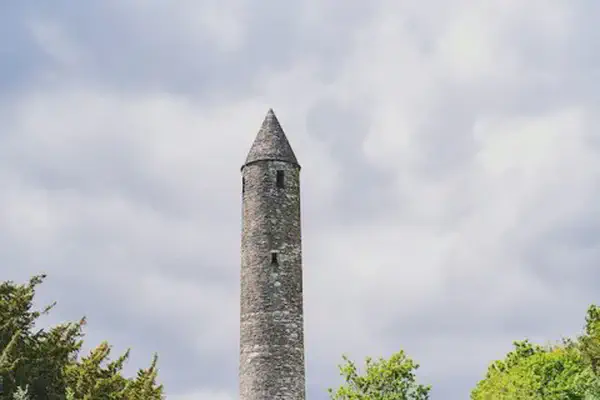On December 05, 1189 in Celtic History
Quitclaim of canterbury, nullified the treaty of falaise

The Treaty of Falaise was a forced written agreement made in December 1174 between the captive William I, “William the Lion”, King of Scots (c. 1028 – 9 September 1087), and Henry II, King of England (5 March 1133 – 6 July 1189).
1189 Treaty Annulled
The treaty was annulled in 1189 when King Richard I of England (8 September 1157 – 6 April 1199), King Henry’s successor, was distracted by his interest in joining the Third Crusade, and William II (c. 1057 – 2 August 1100) King of England’s offer of 10,000 marks sterling.
Quitclaim of Canterbury
More pre-disposed to William than his father, Richard drew up a new charter on 5 December 1189, known as the Quitclaim of Canterbury, that nullified the Treaty of Falaise in its entirety.
This new written agreement restored Scottish sovereignty, reverting to the previously vague and ill-defined personal traditions of fealty and homage between Scottish and English kings, rather than the direct subjugation that Henry demanded
Treaty of Falaise
The Treaty of Falaise refers to an agreement signed in December 1174 between King Henry II of England and King William the Lion of Scotland.
This treaty marked the end of the revolt by William the Lion against Henry II during the conflict known as the Revolt of 1173–1174.
Revolt of 1173–1174
The revolt was a rebellion against the rule of Henry II by his sons (Henry the Young King, Richard the Lionheart, and Geoffrey) and his wife, Queen Eleanor of Aquitaine, who were dissatisfied with Henry’s distribution of lands and authority among his heirs.
Involvement of William the Lion
During the revolt, William the Lion of Scotland allied with Henry’s rebellious sons against Henry II. William sought to regain control of Northumbria, which he had lost to Henry II in the 1157 Treaty of Falaise.
Outcome and Terms
The Treaty of Falaise in 1174 was signed after William the Lion was captured at the Battle of Alnwick in July 1174. The terms of the treaty were harsh for William. He had to pay a large ransom and pledge loyalty to Henry II. Additionally, Scottish nobles who had rebelled against Henry were required to pay homage to the English king.
Release of William the Lion
William the Lion was released from captivity in 1175 after the payment of the agreed ransom.
Impact on Scottish Independence
The Treaty of Falaise had long-lasting implications for Scottish independence. The terms reinforced English overlordship and limited the independence of the Scottish crown.
The Treaty of Falaise is distinct from the earlier Treaty of Falaise in 1174 and the Treaty of Falaise in 1175, both of which were associated with the same conflict between Henry II and his rebellious family members.
Related Content

Shane Patrick Lysaght MacGowan, lead singer of the Pogues, died

St Machar Day, patron saint of Aberdeen

Oíche Shamhna - Cetlic New Year Eve (Halloween)

ALBAN ELFED (Welsh Bardic name for autumn equinox)

Feast day of St. James

John Davie Burgess, King of the Highland Pipers, died at age 71.